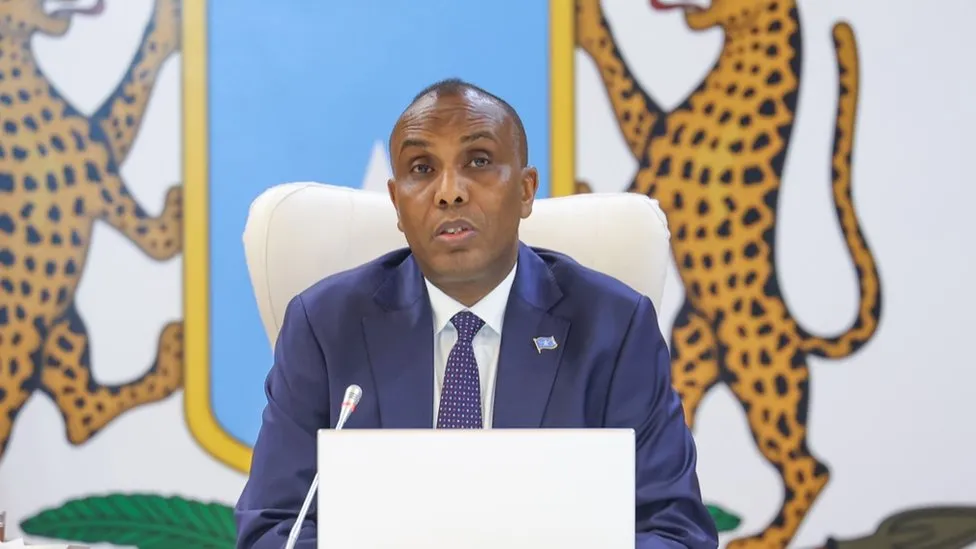Somalia has described an agreement that landlocked Ethiopia made with the self-declared republic of Somaliland over sea access as an act of “aggression”.
Somaliland seceded from Somalia more than 30 years ago, but is not recognised internationally.
It said that Ethiopia agreed to recognise its independence at some point in the future in exchange for military access to the coast.
Ethiopia has not confirmed this aspect of Monday’s contentious deal.
Instead, the office of Ethiopia’s Prime Minister Abiy Ahmed said it signed what is known as a memorandum of understanding (MoU) “to secure access to the sea and diversify its access to seaports”.
Mr Abiy had previously described sea access as an “existential issue” for his country.
His national security adviser, Redwan Hussein, also said on X that the arrangement could enable Ethiopia to access a “leased military base” on the sea, but gave no further details.
An MoU is regarded as a statement of intent and can lead to a legally binding treaty.
The development is being portrayed by both sides as a major diplomatic step.
Somalia, however, has reacted angrily to the MoU as it sees Somaliland as part of its territory.
It said it was recalling its ambassador to Ethiopia.
The government said the agreement was “null and void” and a violation of its sovereignty.
In a statement it added that it “considers this action as an aggression and… is an impediment to the good neighbourliness, peace and stability of the region which [is] already struggling with many challenges”.
Somalia’s Prime Minister Hamza Abdi Bare urged people to remain calm.
“I want to assure them that we are committed to the defence of the country. A part of our land, our sea and our air cannot be violated and I will defend it in every legal way,” he said at a hastily arranged press conference.
Somalia has also said it wanted the UN Security Council and the African Union to discuss the issue.
The exact details of Monday’s agreement that was signed by Prime Minister Abiy and Somaliland’s President Muse Bihi Abdi in the Ethiopian capital, Addis Ababa, are not known.
Mr Abdi said the agreement included a section stating that Ethiopia would at some point in the future recognise Somaliland as an independent country.
Somaliland’s foreign ministry said in a statement later that the “historic agreement ensures Ethiopia’s access to the sea for their naval forces, reciprocated by formal recognition of the Republic of Somaliland, marking this as a significant diplomatic milestone for our country”.
It quoted the president as saying that recognition would be in “exchange for 20km (12 miles) sea access for the Ethiopian naval forces, leased for a period of 50 years”.
